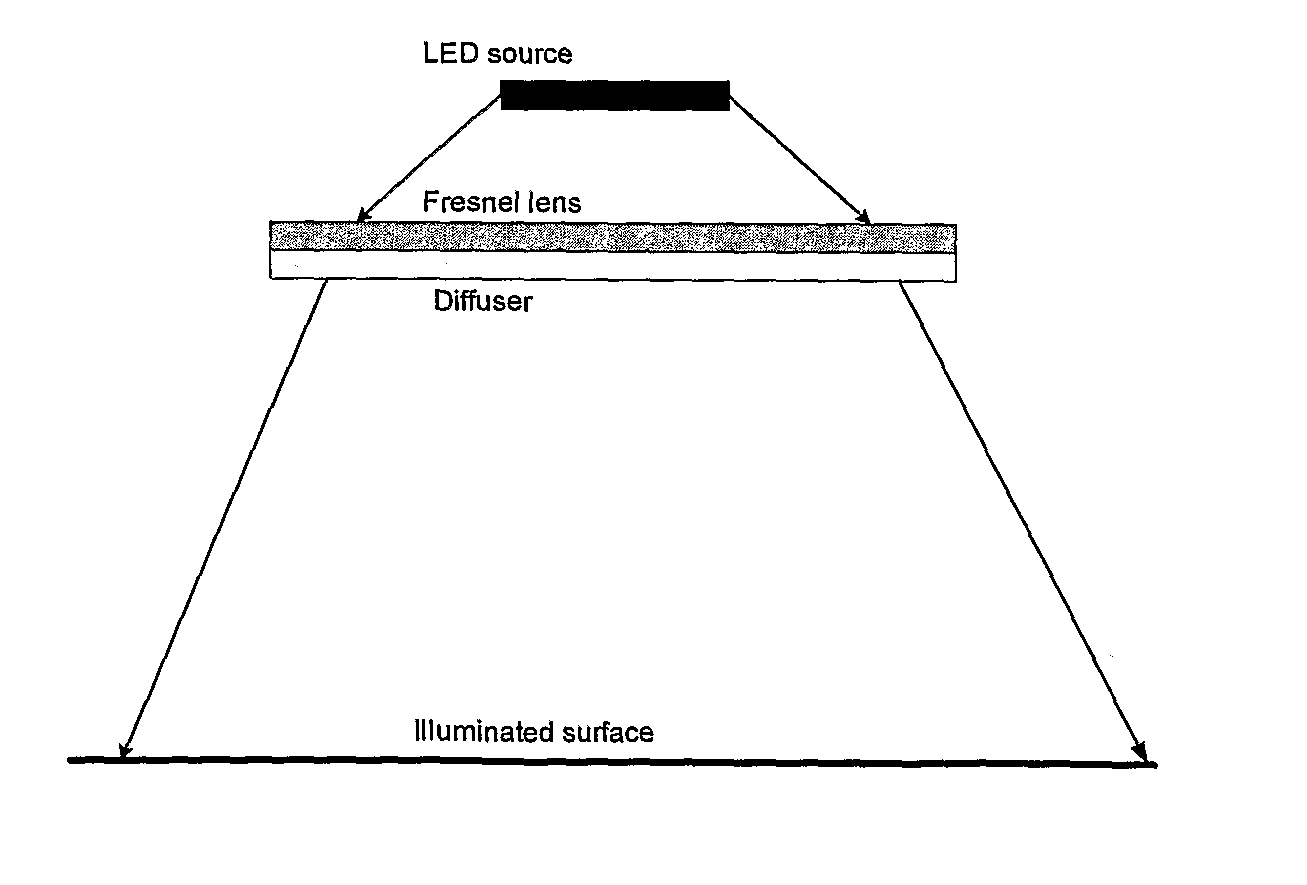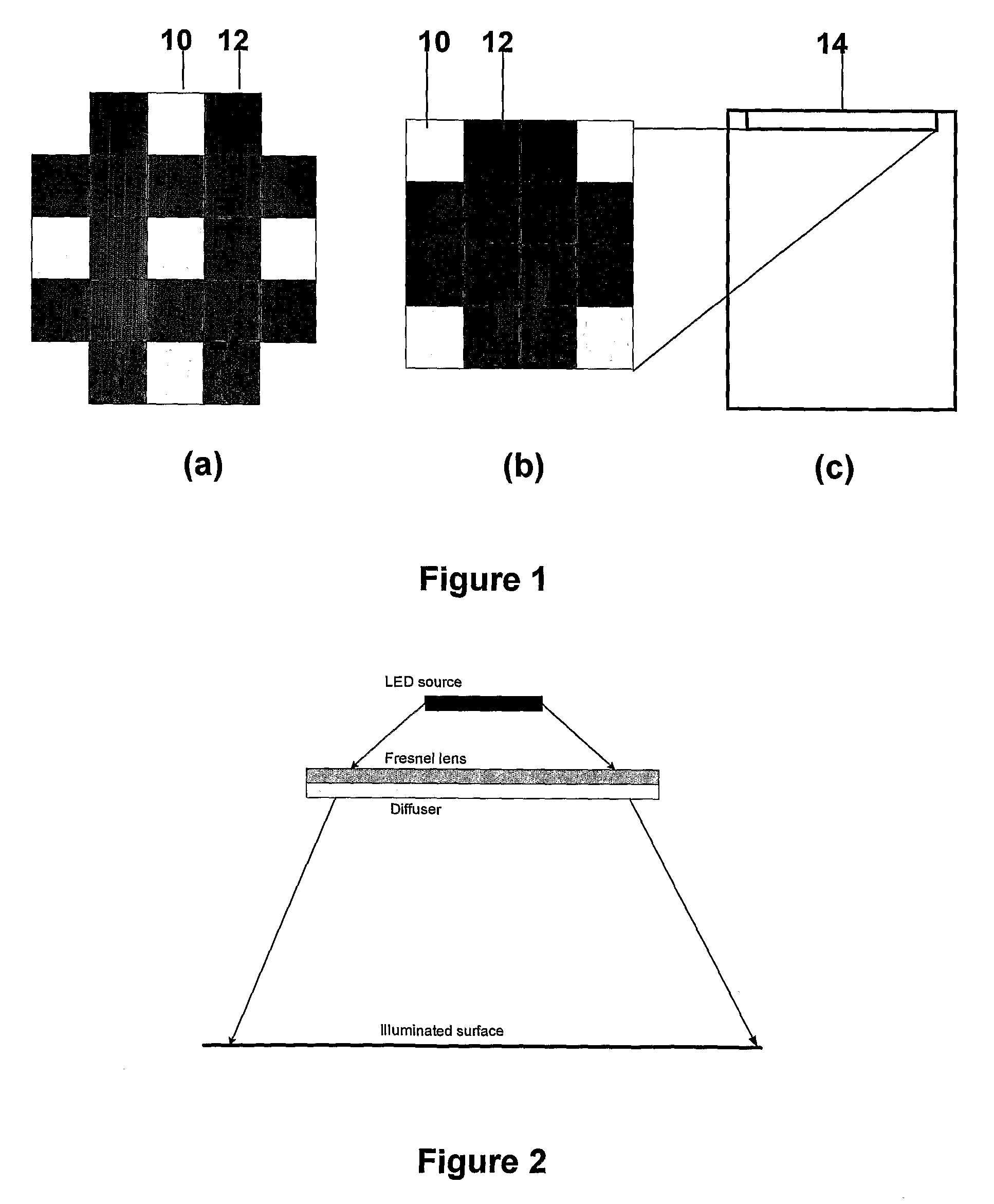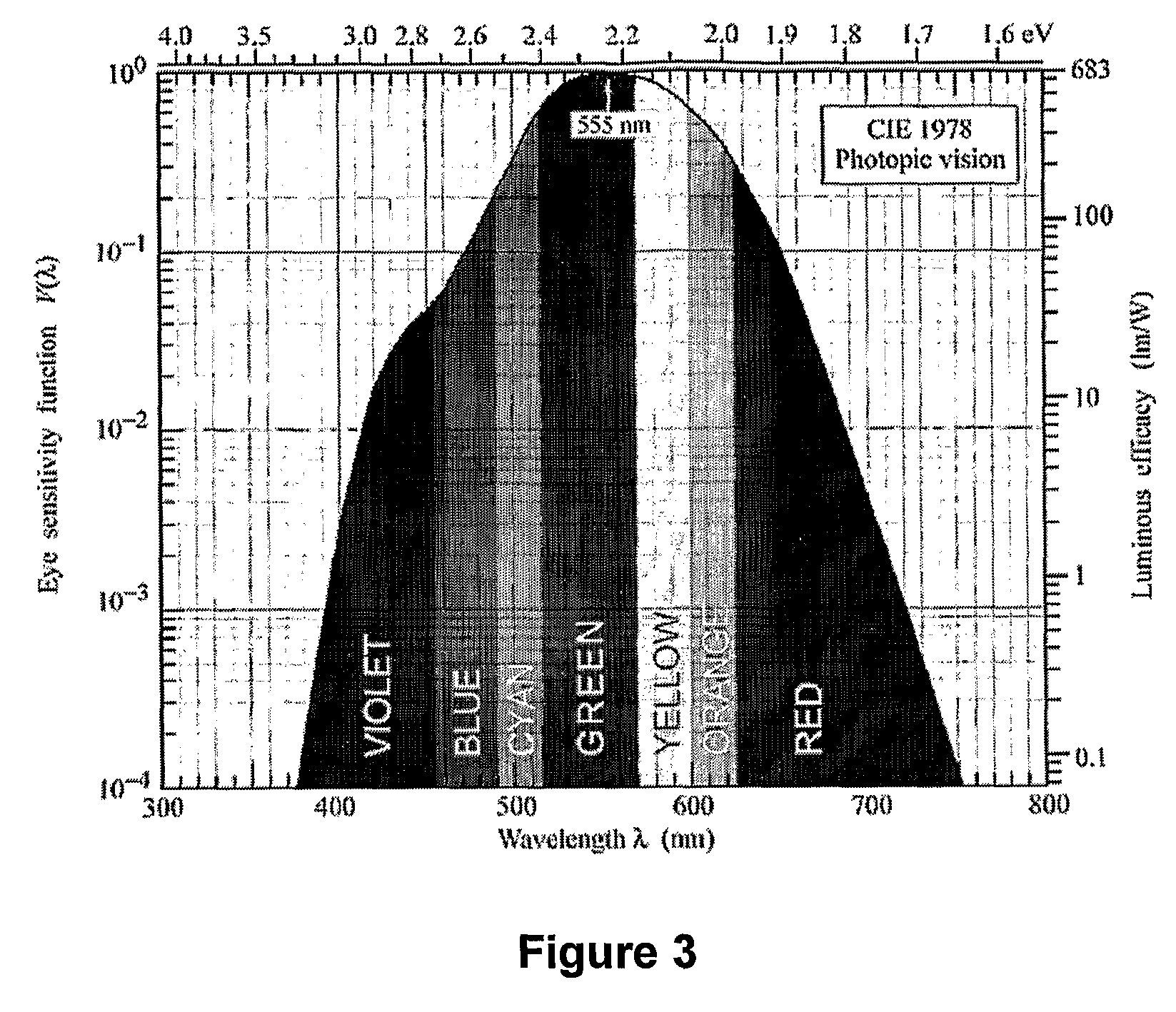Lighting device
a technology of light source and light source, which is applied in the direction of lighting and heating apparatus, electrical circuit arrangement, radiation therapy, etc., can solve the problems of inability to use people in the presence of people due to toxicities, labour-intensive pathogen control methods involving hygiene, and inability to monitor, etc., to achieve non-disturbing effects and easy eye conta
- Summary
- Abstract
- Description
- Claims
- Application Information
AI Technical Summary
Benefits of technology
Problems solved by technology
Method used
Image
Examples
Embodiment Construction
[0029]FIG. 1 shows examples of possible configurations for a lighting device that is operable to inactivate one or more pathogenic or potentially pathogenic bacteria, such as methicillin-resistant Staphylococcus aureus. Any chosen configuration is made up of a plurality of lights 10, typically LEDs, with a wavelength component in the range between 380 nm and 420 nm, for inactivating bacteria and a plurality of lights 12, again typically LEDs, that emit light that is white or a shade of white or light of colours outside the 380-420 nm range to alleviate any discomfort that might be experienced from the 405-nm light alone. The elements can be arranged on a single substrate in any desired pattern, as shown in FIGS. 1(a) and 1(b). The device can be used to simultaneously illuminate and decontaminate any area, for example the inside of an enclosure 14, as shown in FIG. 1(c).
[0030]The elements are arranged so that the integrated output of the device appears as white light a shade of white...
PUM
 Login to View More
Login to View More Abstract
Description
Claims
Application Information
 Login to View More
Login to View More - R&D
- Intellectual Property
- Life Sciences
- Materials
- Tech Scout
- Unparalleled Data Quality
- Higher Quality Content
- 60% Fewer Hallucinations
Browse by: Latest US Patents, China's latest patents, Technical Efficacy Thesaurus, Application Domain, Technology Topic, Popular Technical Reports.
© 2025 PatSnap. All rights reserved.Legal|Privacy policy|Modern Slavery Act Transparency Statement|Sitemap|About US| Contact US: help@patsnap.com



